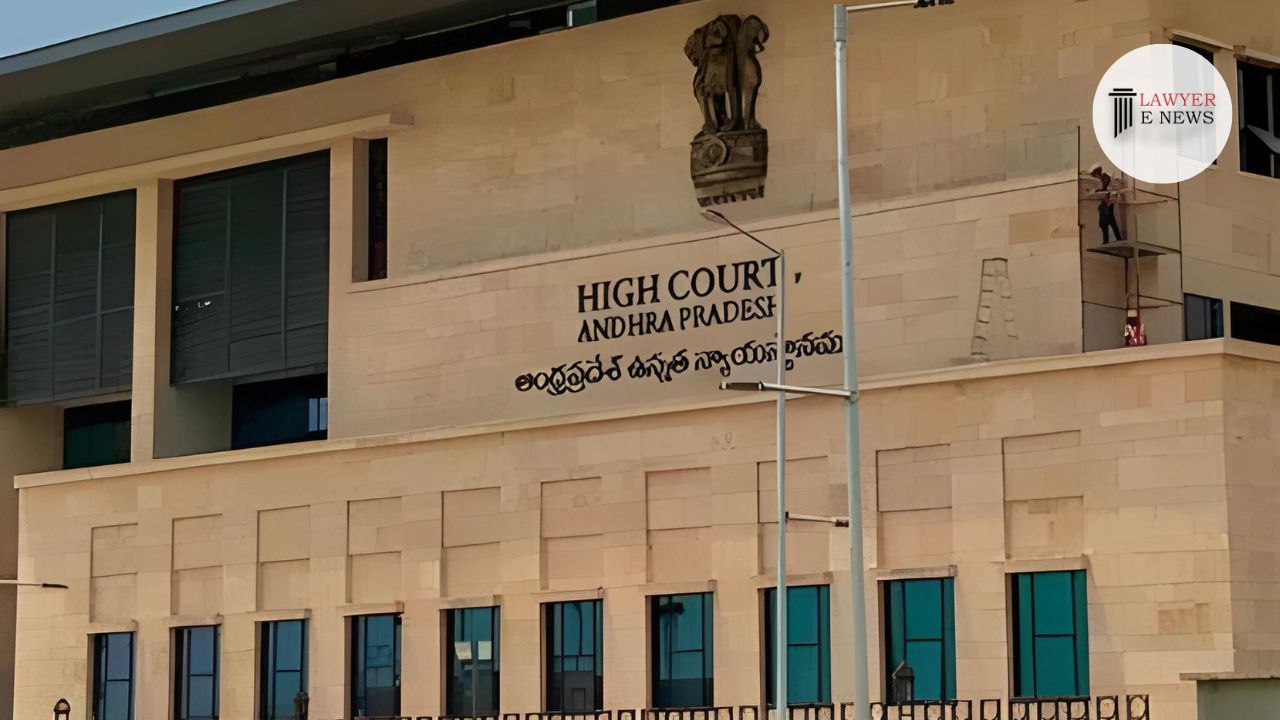-
by Admin
15 February 2026 5:35 AM



Procedure is the handmaid of justice. Procedural and technical hurdles must not obstruct the quest for truth and fair adjudication - Andhra Pradesh High Court, comprising Justice Ravi Nath Tilhari and Justice Nyapathy Vijay, delivered a significant ruling in Civil Revision Petition Nos. 524, 591, and 638 of 2024, emphasizing the importance of procedural flexibility to ensure justice in commercial litigation. The case involved M/s C-Star Engineers & Contractors (C-180), who sought the reception of additional documents, the reopening of evidence, and the recalling of a witness in a commercial suit for recovery of Rs. 1.23 crores from IDMC Limited and others.
The court set aside a common order dated 05/12/2023, passed by the Special Judge for Trial & Disposal of Commercial Disputes, Visakhapatnam, which had dismissed the plaintiff’s interlocutory applications, and allowed the petitioner to file additional documents essential for adjudicating the case.
The court highlighted that the documents in question—comprising originals of already-marked documents, financial records, emails, and other evidence—were crucial for resolving disputes related to financial transactions. The non-filing of these documents earlier was attributed to their misplacement during an office relocation, a reasonable cause in the court’s view.
"The rigour of procedural compliance under Order XI Rule 1(5) of the CPC does not apply to documents not in possession or control at the time of filing the plaint," the court stated, relying on the Supreme Court's rulings in Sudhir Kumar v. Vinay Kumar G.B. and Sugandhi v. P. Rajkumar.
The plaintiff, M/s C-Star Engineers & Contractors, filed a commercial suit (C.O.S. No. 10 of 2022) before the Special Judge for Trial & Disposal of Commercial Disputes, Visakhapatnam, seeking recovery of Rs. 1.23 crores along with interest. The suit was initially filed in 2017 and later transferred to the commercial court following the enactment of the Commercial Courts Act, 2015.
The plaintiff subsequently filed multiple interlocutory applications:
I.A. No. 450 of 2023: To file 30 additional documents, including originals of previously marked copies.
I.A. No. 448 of 2023: To reopen evidence for marking these documents.
I.A. No. 449 of 2023: To recall PW-1 for marking these documents.
The Special Judge rejected the applications, holding that the plaintiff failed to demonstrate "reasonable cause" for the non-disclosure of the documents at the initial stage, as required under Order XI Rule 1(5) of the CPC.
Whether the Special Judge erred in rejecting the plaintiff’s applications under Order XI Rule 1(5) and Order XVIII Rule 17 of the CPC?
Does the procedural requirement of disclosing all documents with the plaint under the Commercial Courts Act bar subsequent admission of documents upon establishing reasonable cause?
Whether the rejection of applications prejudiced the fair adjudication of the case?
The court underscored that procedural rules are not meant to frustrate the delivery of justice but to serve as tools for achieving it. Referring to Sudhir Kumar v. Vinay Kumar G.B., the court held:
"The rigour of procedural compliance does not apply to documents discovered or traced after the filing of the plaint. Such documents can be allowed to be introduced with the leave of the court upon showing reasonable cause."
The court noted that the plaintiff had adequately explained the delay, attributing it to the misplacement of documents during office relocation. This explanation was deemed satisfactory.
Relying on Sugandhi v. P. Rajkumar, the court reiterated:
"If procedural violations do not seriously prejudice the opposing party, courts must lean toward doing substantial justice rather than adhering rigidly to procedural norms."
The documents sought to be introduced were essential for adjudicating the plaintiff’s claim regarding financial transactions and payments. The rejection of these documents could lead to an unjust outcome.
The court pointed out that the same "reasonable cause" for non-disclosure of documents (office relocation) had been accepted earlier by the Special Judge in I.A. No. 123 of 2023, allowing the reception of 34 other documents. It held that the subsequent rejection of the same cause in the present applications was contradictory and unjustified.
"Once the earlier applications were allowed on the same grounds, the Special Judge could not have rejected the subsequent applications without valid reasoning," the court observed.
The court noted that 19 out of the 30 documents sought to be filed were originals of previously marked copies. These originals were essential to establish authenticity and ensure proper adjudication. Rejecting these documents would render the marked copies inadmissible as secondary evidence, adversely affecting the plaintiff’s case.
The High Court allowed the civil revision petitions and set aside the impugned order of the Special Judge. It passed the following directions:
Leave to File Additional Documents: The plaintiff was granted leave to introduce the 30 documents under Order XI Rule 1(5).
Reopening of Evidence and Recall of Witness: The applications to reopen evidence and recall PW-1 for marking the documents were also allowed.
Expedited Trial: The Special Judge was directed to proceed with the suit expeditiously.
This judgment reinforces the principle that procedural rules must not overshadow the substantive right to a fair trial. By prioritizing substantial justice over rigid procedural compliance, the Andhra Pradesh High Court ensured that the plaintiff’s case could be adjudicated on its merits, with all relevant evidence before the court.
Date of Decision: 10th January 2025
